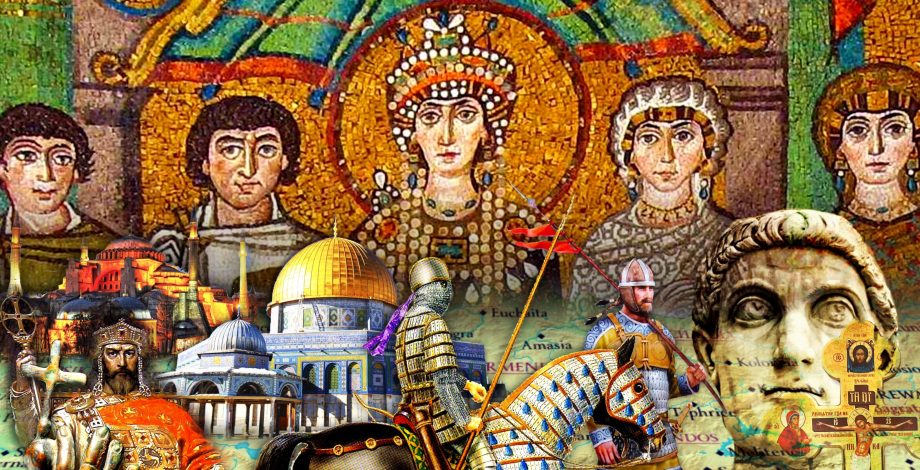
Professor Kaldellis’ new history of Byzantium is out now in the USA and on Kindle everywhere.
In our second conversation we discuss the adoption of Christianity as the Roman religion. How much did Roman society change as a result? Why was early Christianity so riven with disputes?
We also talk about the function of the law in Roman society. How did it help define individual rights and responsibilities beyond criminal behaviour?
Pic: Mosaic of John Chrysostom in the Hagia Sophia
Stream: The New Roman Empire with Anthony Kaldellis. Part 2 – Christianity and the Law
Download: The New Roman Empire with Anthony Kaldellis. Part 2 – Christianity and the Law
RSS Feed: The History of Byzantium
If you want to send in feedback to the podcast:
– Either comment on this post.
– Or on the facebook page.
– Leave a review on Itunes.

There is an episode of the Lord of Spirits podcast which talks about the Christian and Byzantine understanding of the Emperor’s responsibilities:
https://www.ancientfaith.com/podcasts/lordofspirits/saint_constantine_the_great
In this long episode, they trace the template found in the Old Testament scriptures for the King, how that melded with the Roman imperial expectations, how that manifested in Constantine I (and the many reasons why they think he really did authentically convert to Christianity), and then go through a detailed analysis of the coronation ritual itself.
There’s a lot in this episode which backups Kaldellis’ work, but also some that suggests disagreement with it (that the Byzantine Emperor really was Christian and what effects that truly did have on the Empire). It’s a fascinating perspective on Christianity’s intersection with the Roman Empire and highly recommended.
Very interesting
In general, I really enjoy listening to Professor Kaldellis on his podcast and reading his books, but in this case, I have been disappointed. First, it is not a valid historical, sociological, or theological argument to always dismiss things as “whatever.” Saying that Christianity did not influence law shows a lack of understanding of Byzantine law. The profound changes in criminal law, laws regarding marriage, family, and inheritance continue to shape our society today. My humble recommendation to the professor is to deepen his legal studies on Byzantium; it is not necessary to discuss too many topics on too many things, as one cannot know everything. Our current world is deeply rooted in its Christian origins, even though it is now a predominantly secular society. The roles of women today, as well as those of sexual minorities and the recognition of human rights, as a legal category, would not exist without Christianity and its legal influence.
But human rights is a development only in Latin Europe after the 11th century. And protection of sexual minorities would only come in the 20th century. Roman laws regarding women and property were fairly even handed and did not change with the coming of Christianity. The revolutionary ideas about gender and sexuality which Christianity undoubtedly spawned would not develop until much later. Professor Kaldellis’ whole point is that when you study Roman law you realise that Christianity did not initially have a revolutionary impact upon Roman society. That is not to deny their influence over the next 2 millenia